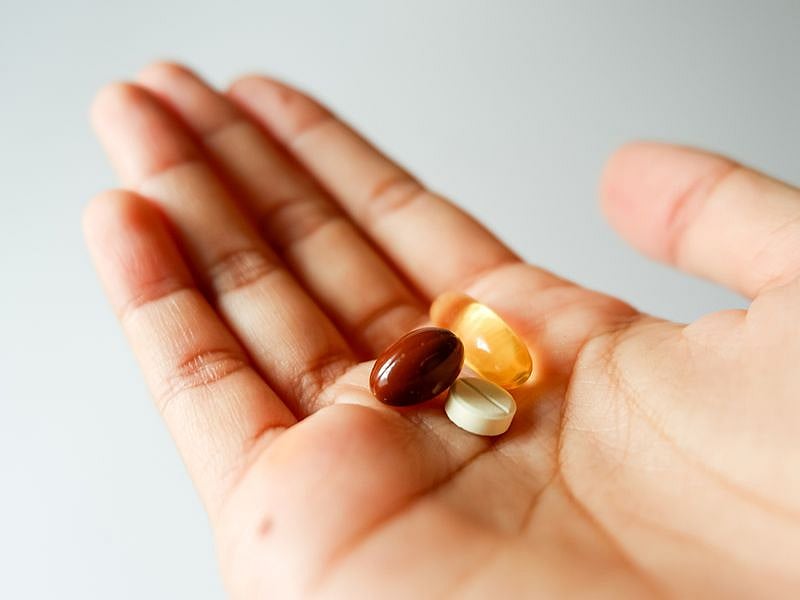Can this vitamin offer extra protection against skin cancer? Doctors weigh in
New research offers much hope, however, with some caveats too

We’re always looking for hope when it comes to cancer prevention.
And while research is shedding light on potential new tools, doctors caution that no supplement can replace sunscreen or protective habits. One such compound now in the spotlight is nicotinamide, a form of Vitamin B3 that may help support the skin’s natural defense against UV-induced DNA damage, especially in those who have already faced skin cancer.
Doctors who perform skin cancer surgeries have long been interested in this ingredient, and now, a large-scale study published in JAMA Dermatology has reignited the conversation. The research, which followed nearly 34,000 U.S. veterans, found that taking nicotinamide supplements was linked to a reduced risk of developing non-melanoma skin cancers — especially among people who had already experienced their first diagnosis.
Those who took 500 mg of nicotinamide twice daily for at least a month saw a 54 per cent drop in the risk of developing another skin cancer, compared to those who didn’t take the supplement. Overall, the reduction across all participants was 14 per cent, with the biggest benefits seen in squamous cell carcinoma, one of the most common non-melanoma skin cancers.
To better understand how this supplement works — and who should consider it — we spoke with Dr. Rakesh Kumar Mishra, Specialist Dermatology, Aster Cedars Hospital & Clinic, Jebel Ali.
What is nicotinamide?
As he explains, it is a coenzyme in Sunlight UV radiation DNA damage repair mechanism, and restricts, minimises skin cancer development. According to Dr. Mishra, nicotinamide essentially helps the skin’s natural repair systems bounce back after UV exposure, preventing cellular damage from snowballing into cancerous changes.
He adds that the biggest benefit appears in people who begin supplementation soon after their first diagnosis. “The biggest risk reduction was seen among people who started taking Nicotinamide supplements after their first skin cancer diagnosis. Although this benefit declined following subsequent skin cancer diagnosis becoming non-significant after the seventh.”
However, timing is everything. The supplement’s effectiveness wanes after multiple recurrences, underscoring the need to act early and in consultation with a dermatologist.
He notes that long-term use may be considered safe under medical supervision. “While long-term niacinamide has generally been well tolerated at doses up to 1 g/day, liver toxicity could be a concern, especially for those with a history of liver disease.”
But should everyone start popping Vitamin B3? Not so fast, says Dr. Mishra. Those, who have a history of earlier diagnosis of any form, or who are already showing precancerous change in the skin might be be better off to start with B3 supplements, but after discussion with their healthcare providers first, if it suits them. “Whether B3 supplements are beneficial for people who have never been diagnosed with skin cancer, is yet to be understood and more research is needed,” he says.
For now, nicotinamide is recommended mainly to lower the risk of recurrence in high-risk patients. It should not be seen as a universal shield or a substitute for sunscreen, protective clothing, and regular skin checks.
The bigger picture: What about sunscreen and lifestyle?
Dr. Mishra emphasises that no supplement can replace the basics of skin cancer prevention. Topical nicotinamide, in the form of creams or moisturisers, has not been proven effective in preventing skin cancer. The key pillars of protection are still protective clothing and sunscreen, he explains.
He adds that while nicotinamide can support an overall prevention plan, it should complement the strategy, not serve as its foundation.
Myths and misconceptions
According to Dr. Mishra, the conversation around supplements often drifts into misinformation.
He points out that:
Antioxidants and general health supplements have not been proven to reduce skin cancer risk.
Avoiding sunlight does not necessarily cause vitamin D deficiency; dietary sources can meet the need.
Sunscreen cannot be replaced by any pill or supplement.
Tanning — even “healthy” tanning — increases risk.
Cloudy days still bring UV exposure and potential damage.
The growing evidence on nicotinamide does offer some hope, for those vulnerable to skin cancer recurrence. Still, it’s not a miracle fix. Sunscreen, shade, and skin checks are still what you need to keep in mind.
What this research does signal, however, is a shift — a move toward supplement-based prevention strategies that could make a meaningful difference for people at risk.
As Dr. Mishra notes, nicotinamide isn’t a cure-all, but for the right patients, it might just be instructive.
Network Links
GN StoreDownload our app
© Al Nisr Publishing LLC 2025. All rights reserved.